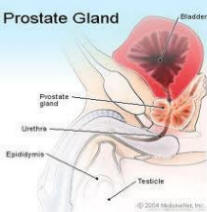CIDPUSA.ORG
| Prostate Cancer Easy Fix autoimmune diseases cidpusa.org | ||||||
| If you like this page please click the button please read our e-book . Injections of Vitamin C Slash Cancer Growth
Prostate & sexual health Selenium & prostate cancer cure
There are three prostate problems that are commonly found in men after the age of 40. These three disorders have different symptoms and you may not experience any symptoms. Prostatitis means an inflamed prostate. Any times there is fever or you just feel tired your body could be fighting an infection in the body. Other symptoms and signs may be a burning feeling when you urinate, a frequent need to urinate, and your prostate may feel swollen and warm. Inflammation anywhere in your body means it is fighting germs, bacteria, or trying to repair an injury.
Bacteria caused prostatitis can be detected by a microscopic examination of a urine sample. If is determined you have bacteria prostatitis your doctor will give you a prescription for an antibiotic. If you continue to get infections, you may have a defect in your prostate gland that allows bacteria to grow freely. If you have a defect in your prostate gland, it can be corrected by surgery. Many times if you have a problem in urinating the doctor wonít find bacteria and could be caused by kidney stones or cancer. The doctor may decide you donít have any other reasons for an inflamed prostate so could give you a diagnosis of nonbacterial prostatitis. Unfortunately, antibiotics will not help a nonbacterial prostatitis. Your doctor may advise you to change your diet or try taking warm baths to ease your symptoms. An alpha-blocker may be prescribed to help relax the muscle tissue in the prostate. Treatment may vary for each person. BPH or enlarged prostate normally appears in men over 50. The first signs of an enlarged prostate are a problem with starting urination. A manís prostate can grow and as it does it squeezes the urethra. The urethra passes through the prostate gland and as it grows it puts pressure on the urethra causing problems with urination. The following are common symptoms of BPH or enlarged prostate: Getting up several times at night to urinate. Feeling the frequent need to urinate. Trouble starting a stream of urine even if you had to rush to a bathroom The stream of urine is weak Leaking or dribbling Feeling the urge to urinate again after you have finished urinating A small amount of blood seen in the urine BPH is not serious by itself. The symptoms of BPH and prostate cancer are the same. If you are experiencing any of the symptoms of BPH you should see your doctor to be sure you are not in the early stages of prostate cancer. If the symptoms are making your life miserable it can be treated with medication prescribed by your doctor. If you are not able to urinate at all, see your doctor immediately. Being unable to urinate can occur after taking an over-the-counter cold or allergy medicine. BPH can lead to serious problems such as urinary tract infections and occasionally BPH can lead to kidney damage. A doctor will be able to perform tests to see if you are suffering from BPH or something more serious such as prostate cancer.
continue to Nutrition and
Prostate Cancer |
| |||||
